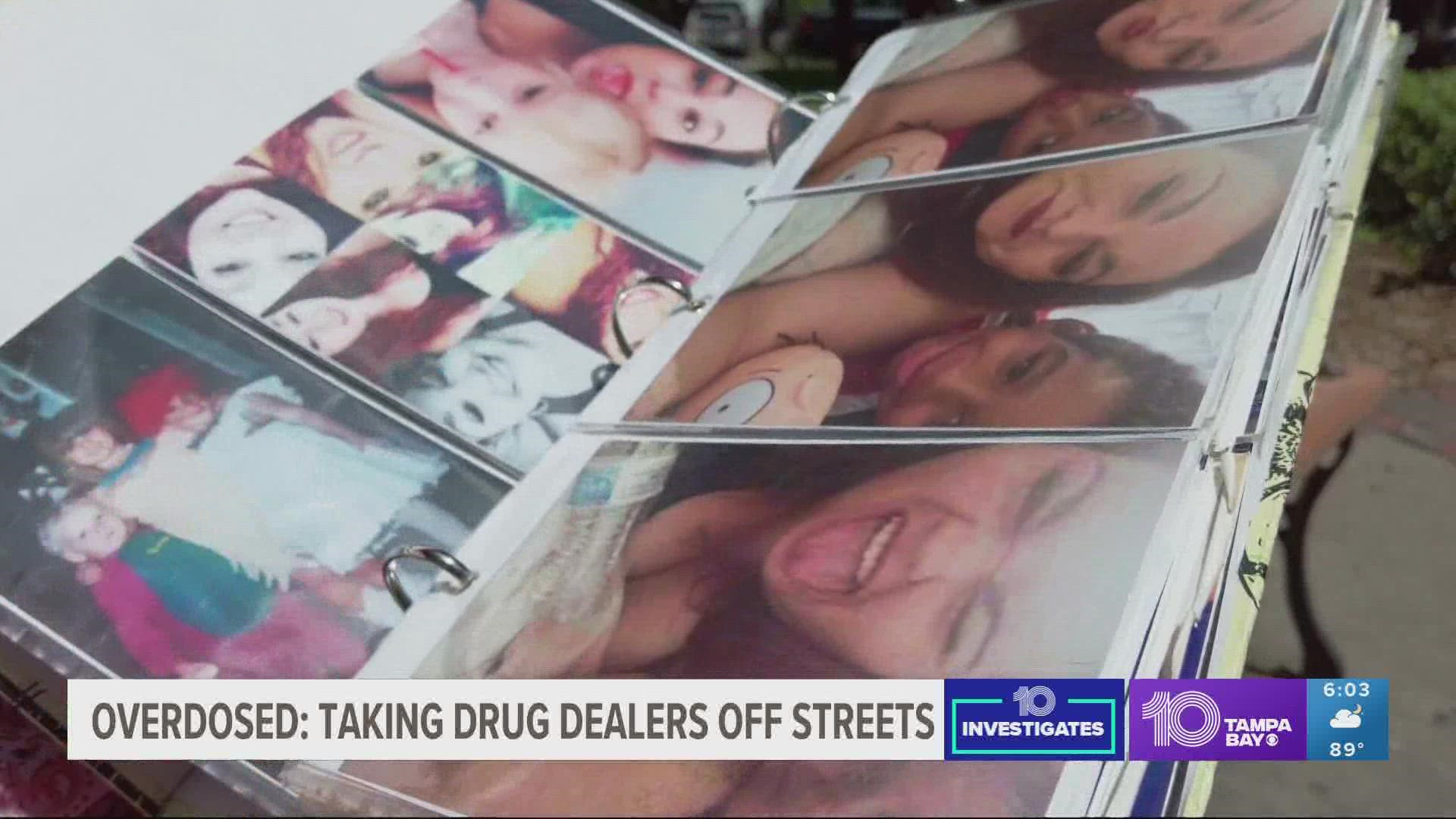NEW PORT RICHEY, Fla. — Florida law enforcement agencies are increasingly cracking down on the fentanyl problem in our state.
Fentanyl is the leading cause of death for Americans 18-45, surpassing suicides, Covid-19 and car crash related deaths, health experts report.
Joanne Gibson’s daughter, Melynda, is part of those statistics. She passed away from fentanyl poisoning in 2018. Gibson met with 10 Investigates Jennifer Titus at a park in New Port Richey. It's a place she said Melynda loved to hang out.
“She would bring her son to play on the playground,” Gibson said. “She was a daughter, mother, sister, auntie, a friend.”
She said when she called the Medical Examiner’s office regarding Melynda’s death, he told her the cause of death, "was fentanyl poisoning."
“When I asked if there was any other drug in her system, he said no that it was 100% fentanyl,” Gibson said.
The 26-year-old, mother of 2, had a lot of heartache over the years according to her mother, and that’s when she turned to drugs to cope with pain.
“She went to her friend’s house in 2018," Gibson said. "They thought they were purchasing heroin, turned out to be 100% fentanyl.”
When we asked Gibson if she thought Melynda meant to take fentanyl that night, she told us, "No, Not at all."
Law enforcement and state leaders have put a focus on taking fentanyl off the street.
There is a task force the Florida Department of Law Enforcement has created that specifically targets those selling fentanyl. In three days the team recovered 4 grams of fentanyl in northwest Florida — enough to kill several thousand people.
FDLE tracks how many drugs are being seized and how long it takes for drugs to be tested and turned back around to the law enforcement agency.
Right now, the average turnaround time is 87 days.
That average time matters because going back a few years, to 2020, the turnaround time was 25 days. It’s that turnaround time that Gibson questions the speed at which authorities are arresting those accused of selling the deadly drug.
A video taken in 2018 shows a drug deal between an undercover law enforcement officer and suspect, Michael Reincke. However, investigators said Michael Reincke wasn’t arrested that day.
Even though FDLE would later confirm it to be a trafficking amount of fentanyl.
Two years later, on June 29, 2020, Deputies arrived on the scene of a domestic disturbance call regarding Reincke. In the video, he is shown talking to police officers.
“What’s your name?" Deputies asked. "Michael Reincke? I already know I am going to jail," Reincke answered.
But not for the domestic call. Deputies had noticed the warrant for the 2018 undercover deal. The drugs he was accused of selling to an undercover agent in 2018.
10 Tampa Bay requested more information from the Pasco Sheriff’s Office specifically about this case, wanting to know why it took so long to arrest him. They told us they are unable to comment because the prosecution is pending.
And in addition, generally, there are multiple reasons why a case would take that long to make an arrest. For instance, an individual may be part of a larger investigation in which an immediate arrest may impact.
We also asked if arrest warrants for those selling drugs are being made a priority and the sheriff’s office released the following statement saying the Pasco County Sheriff's Office is continuously finding ways to address overdoses and provides information on the risk of drug use on its website.
"PSO’s Behavioral Health Intervention Team (or BHIT), which was created in 2019, meets with those who have survived an overdose to provide information on community-based resources to assist in addressing addiction, mental health and other appropriate resources," the statement reads. "They have also compiled community-based resources on our website to address a variety of challenges our citizens may face."
"PSO also continually provides information to citizens on the risks of drugs such as fentanyl and ISO. Other units investigate and build cases against dealers and suppliers to address the issue from that end as well, while also removing dangerous drugs from Pasco’s streets."
Pasco County Sheriff Chris Nocco also said while law enforcement continues to tackle mental health and healthcare issues, more community and healthcare resources are needed.

